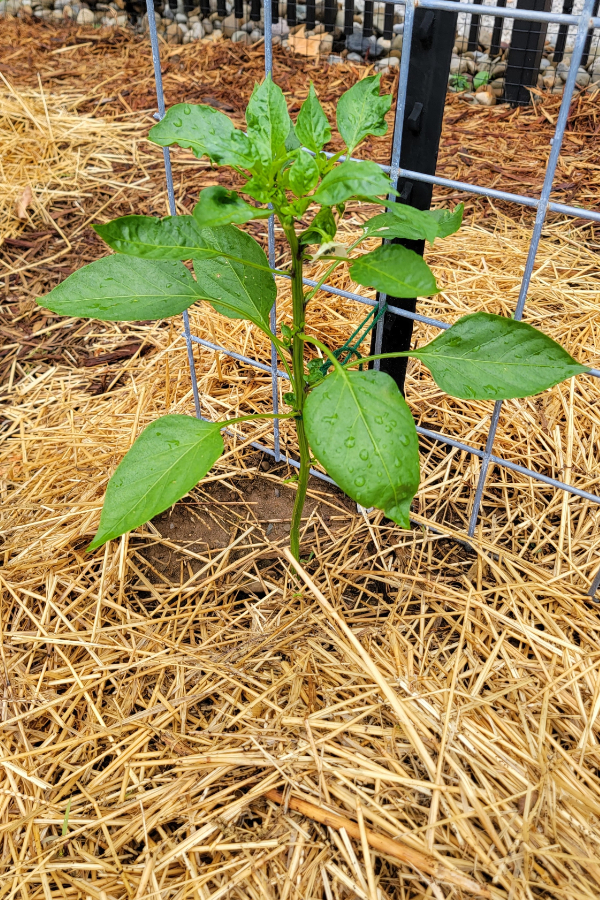Explore the Best Fertilizers for Peppers and Enhance Your Garden's Return
Explore the Best Fertilizers for Peppers and Enhance Your Garden's Return
Blog Article
Organic Vs. Synthetic Fertilizers: Which Is Best for Supporting Healthy Pepper Plants?
In the realm of supporting healthy pepper plants, the option between natural and synthetic plant foods stands as an essential choice with significant implications. While both options objective to provide essential nutrients to sustain plant development, the nuances of their impact on the soil, plant health and wellness, and the setting spark a debate that mirrors throughout the gardening area. Recognizing the unique benefits and prospective challenges of each plant food type is crucial for pepper cultivators seeking to maximize their yields while keeping a lasting and eco-conscious technique.
Benefits of Organic Plant Foods
Organic fertilizers supply a sustainable and environmentally-friendly technique to nourishing pepper plants, supplying vital nutrients without using artificial chemicals. These natural fertilizers are originated from organic sources such as compost, manure, bone meal, and algae, promoting dirt health and biodiversity. Unlike synthetic plant foods, natural options release nutrients gradually, making sure a well balanced and steady supply for pepper plants to grow.
One significant benefit of natural plant foods is their capability to boost dirt structure and water retention. By improving dirt health, organic plant foods promote useful microbial task, which aids in nutrient uptake by pepper plants. Furthermore, natural plant foods decrease the threat of chemical run-off, safeguarding water sources from air pollution and safeguarding the atmosphere.
In addition, organic plant foods add to long-lasting soil fertility by advertising the growth of useful dirt microorganisms. These organisms assist damage down organic matter, releasing nutrients in a kind that is conveniently accessible to pepper plants. best fertilizers for peppers. By promoting a healthy and balanced soil ecological community, organic fertilizers sustain lasting pepper farming practices that benefit both plants and the atmosphere
Disadvantages of Artificial Plant Foods
Artificial plant foods, in contrast to their organic equivalents, present different drawbacks when used to nourish pepper plants, affecting both plant health and ecological sustainability. One major downside of synthetic plant foods is their propensity to leach nutrients from the dirt quickly.
Furthermore, the overuse of artificial plant foods can contribute to water air pollution. Excess plant foods not absorbed by plants can clean away into water bodies, leading to eutrophication, where algae blossoms deplete oxygen degrees in the water, harming marine life. Moreover, synthetic plant foods are normally originated from non-renewable sources, such as fossil gas, contributing to carbon exhausts and ecological deterioration during their manufacturing.
Nutrient Absorption Contrast
Effective nutrient absorption plays an essential function in the overall health and wellness and development of pepper plants. When contrasting artificial and natural fertilizers in terms of nutrient absorption, natural plant foods have the advantage of supplying an extra balanced and slow-release source of nutrients (best fertilizers for peppers). Organic plant foods have a variety of macro and micronutrients that are not just helpful for the plants yet also advertise healthy and balanced soil microbial activity, which helps in nutrient uptake. On the various other hand, synthetic plant foods typically provide a quick release of nutrients, which can cause seeping and runoff, this post leading to lower nutrient absorption prices by the plants.
Additionally, natural fertilizers enhance dirt framework and water retention ability, permitting pepper plants to accessibility nutrients extra successfully. This improved dirt top quality facilitates origin growth, enabling far better nutrient absorption. Artificial plant foods, although at first improving plant growth because of their high nutrient concentrations, may hinder long-lasting nutrient absorption by degrading soil health over time.
Ecological Influence Factors To Consider

On the other hand, artificial fertilizers, although frequently more focused and quickly offered to plants, can have detrimental results on the atmosphere otherwise applied effectively (best fertilizers for peppers). Their manufacturing requires high power inputs, causing greenhouse gas emissions and adding to climate adjustment. The overflow of excess artificial plant foods can pollute water resources, leading to eutrophication and harming water ecosystems.
Finest Plant Food Practices for Peppers
To attain this, it is essential to comply with ideal plant food methods tailored to the certain requirements of pepper plants. One important method is to do a soil test before applying any kind of plant foods.
One more essential practice is to fertilize pepper plants at the right time. Typically, peppers take advantage of obtaining fertilizer at planting and then once more when they begin to flower. Over-fertilizing can result in nutrient imbalances and damage the plants, so it is crucial to adhere to advised application prices.
Additionally, choosing a balanced plant food with an NPK proportion that fits pepper plants' requirements is essential. Organic fertilizers, such as compost or manure, can be exceptional options as they launch nutrients gradually and improve dirt structure over time. Nonetheless, synthetic plant foods can supply a quick nutrient increase when required. Eventually, combining artificial and organic plant foods sensibly can aid support healthy and balanced pepper see this page plants while lessening environmental effect.
Verdict

Organic plant foods provide an environmentally-friendly and sustainable technique to beneficial pepper plants, offering essential nutrients without the use of artificial chemicals. Unlike artificial fertilizers, organic choices launch nutrients gradually, guaranteeing a consistent and balanced supply for pepper plants to grow.
Synthetic fertilizers, site here in contrast to their natural equivalents, pose different negative aspects when used to nourish pepper plants, affecting both plant wellness and environmental sustainability. When comparing natural and artificial plant foods in terms of nutrient absorption, organic fertilizers have the advantage of supplying an extra balanced and slow-release source of nutrients.Moreover, natural plant foods enhance soil structure and water retention capability, enabling pepper plants to gain access to nutrients extra successfully.
Report this page